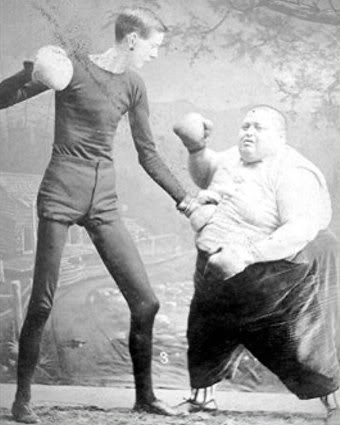Hunger artists, professionals fasters who would display themselves before dime-museum audiences as they gradually starved over many weeks, were once popular in sideshows and with Kafka, That “entertainment” died out, but fasting is in vogue again, this time for health rather than curiosity. At Aeon, S. Abbas Raza investigates the new no-food trend. The opening:
“It all began in March last year when I read an article by Steve Hendricks in Harper’s magazine titled ‘Starving Your Way to Vigour’. Hendricks examined the health benefits of fasting, including long-term reduced seizure activity in epileptics, lowered blood pressure in hypertensives, better toleration of chemotherapy in cancer patients, and, of course, weight loss. He also mentioned significantly increased longevity in rats that are made to fast. Most interesting was his tale of undertaking a 20-day fast himself, during which he shed more than 20 pounds and kept it off for the two years since. I was fascinated, and I started reading more about fasting afterwards, although at the time I had no intention of doing it myself.
The benefits of fasting have been much in the news again lately, in part due to a best-selling book from the UK that is also making waves in the US: The Fast Diet: Lose Weight, Stay Healthy, Live Longer (2013) by Dr Michael Mosley and Mimi Spencer. Mosley is a BBC health and science journalist who extols the benefits of ‘intermittent fasting’. There are many versions of this type of fasting that are currently the subject of various research programs, but Mosley settled on the 5:2 ratio — in every week, two days of fasting, and five days of normal eating. Even on the fasting days, one may eat small amounts: 600 calories maximum for men, 500 for women, so about a quarter of a normal day’s intake. Mosley’s claim is that such a ‘feast or famine’ regime closely matches the food consumption patterns of pre-modern societies, and our bodies are designed to optimize such eating. Drawing on various research projects studying intermittent fasting and weight loss, cholesterol levels and so on, he argues that even after quite short periods of fasting, our bodies turn off fat-storing mechanisms and switch to a fat-burning ‘repair-and-recover’ mode. Mosley says that he himself lost 20lbs in nine weeks on the diet, bringing his percentage of body fat from 28 to 20 per cent. He says his blood glucose went from ‘diabetic to normal’, and that his cholesterol levels also declined from levels that needed medication to normal. He also says that he feels much more energetic since.”
Tags: S. Abbas Raza

